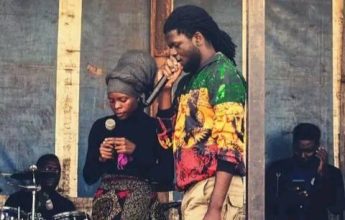Writing from exile—part ii
Malawian literature from the diaspora is a mirror of the dark political age of founding president the late Hastings Kamuzu Banda under whose tyranny some of these writers fled the country they called home.
The collective aspirations, hopes and dreams of the nationalist struggle were thwarted by the crop of leaders that came to power. Instead, disillusionment and frustrations became the lot of many Malawians.
Jack Mapanje, in an interview with Richard Lea of The Guardian in 2007, stated: “I started writing when I discovered that the politicians in my country were telling lies. So, I thought that even if nobody reads me, I’m going to tell a bit of truth.”

Mapanje started writing because of his firm belief in poetry’s power to influence political perception. In 1981 he produced a poetry anthology titled Of chameleons and gods which was banned by Malawi government and led to his arrest in 1987.
Benedicto Malunga, a poet and scholar of literature, says this anthology’s title was deliberately metaphoric to hide the message from the probing eyes of government agencies that were used to stifle freedom of expression.
Mapanje continued to criticise Banda even in exile.
According to associate professor of English at the University of Malawi’s Chancellor College, Syned Mthatiwa, one strategy that Mapanje adopted to criticise and emphasise Banda’s wickedness and cruelty, was to dehumanise him by calling him a beast, brute, monster or fiend.
“In a poem titled The Chattering Wagtails of Mikuyu Prison Mapanje calls Banda “the Monster,” “the Beast,” and “the Brute.” In a poem titled Guilty of Nipping Her Pumpkin Leaves he refers to the dictator as a “monster,” “beast,” and “fiend.”, Mthatiwa analyses.
While Frank Chipasula’s anthology, Whispers in the Wings—an openly critical collection of Banda’s dictatorial reign-oppression and exploitation, murder, and abuse of women who willingly and unwillingly danced to the tunes of the dictatorship is another piece of literature from the diaspora.
In The Detainee by Legson Kayira, dictatorship is criticised by focusing on the great tragedy of post-independence Africa-where freedom from colonial rule in many countries resulted in ruthless dictatorships which terrorised and oppressed the citizenry.
“The fictitious postcolonial country of Malamoza in the novel is a thinly veiled picture of Malawi under Banda, Sir Zaddock Mlingo in the novel. Kayira’s criticism lies in his disillusionment that can best be captured by the observation that in Malawi the dawn of independence did not bring the sun, but years and years of darkness, of poverty, brutality, exploitation, slaughter, and suffering,” says Mthatiwa.
Tiyambe Zeleza criticised Banda’s regime in his novel Smouldering Charcoal, in which Banda is referred to as “The Leader”. The novel exposes the ruthlessness, violence, exploitation, and murders that characterised Banda’s regime.
“Zeleza uncovers the horrors of Banda’s prisons and the poverty and squalor under which the people lived. The novel was written in exile in 1982, but remained unpublished until 1992 out of concern for possible repercussions on the author’s family back in Malawi,” says Mthatiwa.
While Yet another song, a poem by David Rubadiri is a lamentation from exile. Rubadiri highlighted his experiences with the one party regime and criticised the dictatorship.
“He makes reference to the joy and excitement that he, like other Malawians, felt following the success of the independence struggle and the end of colonial rule. The country celebrated a new national anthem and a new flag.
He also evokes the fact that he supported Banda’s government, serving, as is well known to many, as an ambassador to the United States and the United Nations. But his support for Banda was not to last for, as he puts it, the ‘new totems,’ [Banda and his cohorts], grew/ Taller than life/ Grimacing and breathing fire.
“In other words, they metamorphosed into oppressors and dictators. As the world knows today, Rubadiri disagreed with Banda and he left his diplomatic post into exile in Uganda. It is here where he was to sing “yet another song,” but this time ‘A song of exile.’ That is, a song of loss, disappointment and despair.
Felix Mnthali’s Waiting for the rain is another cry from exile in which the persona portrays leaders who were amassing wealth corruptly at the expense of poor people.
‘The robust and sweating poor of our sort/Clap hands, sing and ululate/For Land-and-Range-rovers… [of leaders passing by]’ reads stanza 3 in criticism of political leaders.
Thus through works such as these, the writers were able to influence change, though to a lesser extent as James Ng’ombe, a novelist and literature critic, observes a good work of literature is the one people can relate to.
“The success of a published work is measured by how people interpret it in different situations. If the works of these writers relate to the politics of the time and even beyond, then that’s what constitutes good writing,” he says.
While in exile, Professor Mnthali says he did not tire to criticise the dictatorship under Banda.
“I continued to write. I even wrote letters which criticised the dictatorial regime back home. Through our writings, we managed to expose the evils of dictatorship,” he says. “The writers strengthened the political movement [of democracy] through their writings. Donors and other international rights groups came hard on Dr. Banda,,” says Sam Mpasua writer. n





